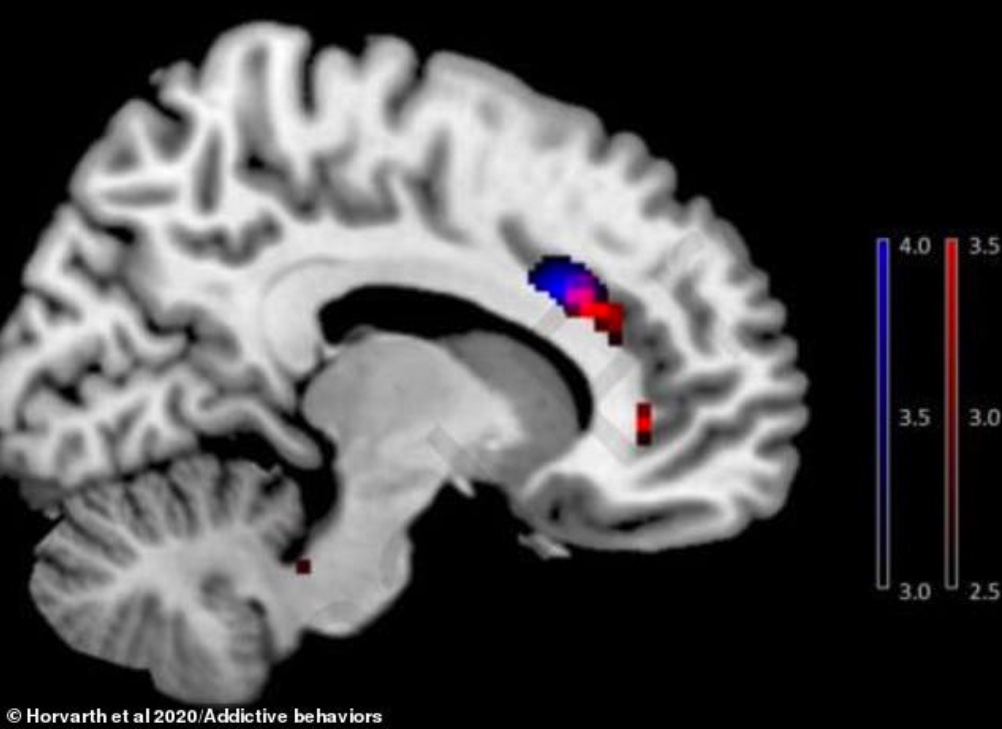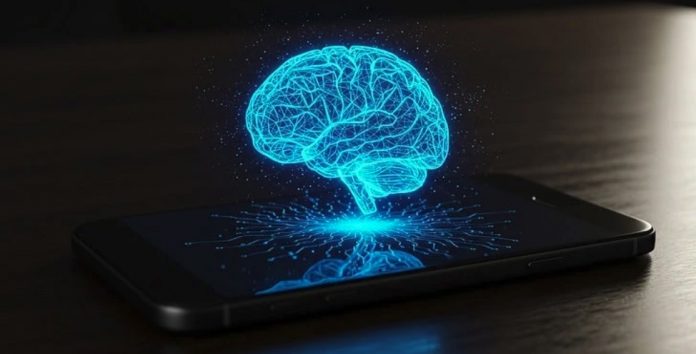พฤติกรรมการใช้สมาร์ตโฟนอาจมีลักษณะคล้ายกับพฤติกรรมเสพติด โดยเฉพาะในยุคที่สมาร์ตโฟนกลายเป็นส่วนหนึ่งของชีวิตประจำวัน งานวิจัยจากมหาวิทยาลัยไฮเดลเบิร์กเผยว่า การเว้นใช้งานเพียง 72 ชั่วโมงก็สามารถเปลี่ยนแปลงการทำงานของสมองได้อย่างชัดเจน ทำให้เกิดคำถามใหม่เกี่ยวกับความผูกพันลึกซึ้งระหว่างมนุษย์กับเทคโนโลยี
การทดลองนำโดย ดร.โรเบิร์ต คริสเตียน วูล์ฟ ดำเนินการกับกลุ่มวัยหนุ่มสาวที่ใช้สมาร์ตโฟนเป็นประจำ โดยให้ผู้เข้าร่วมงดใช้งานสมาร์ตโฟนอย่างเข้มงวดเป็นเวลา 3 วัน ก่อนและหลังการเว้นใช้ ผู้เข้าร่วมได้รับการสแกนสมองและตอบแบบสอบถามเกี่ยวกับอารมณ์และความอยากใช้งาน แม้จะไม่มีความเปลี่ยนแปลงที่ชัดเจนในระดับพฤติกรรม แต่ภาพจาก fMRI กลับแสดงให้เห็นว่าสมองมีการตอบสนองต่อภาพของสมาร์ตโฟนมากขึ้น โดยเฉพาะในบริเวณที่เกี่ยวข้องกับระบบรางวัลและความอยาก ซึ่งคล้ายกับสิ่งที่พบในผู้ที่มีพฤติกรรมเสพติด ในขณะเดียวกัน เมื่อดูภาพของสมาร์ตโฟนที่เปิดใช้งาน สมองบางส่วนกลับแสดงการตอบสนองลดลง สะท้อนว่า “สิ่งเร้า” จากสมาร์ตโฟนอาจลดความดึงดูดหลังงดใช้งานชั่วคราว เหมือนร่างกายที่เริ่มชินกับการงดสารกระตุ้น

ผลวิจัยชี้ให้เห็นว่า พฤติกรรมใช้สมาร์ตโฟนอาจเกี่ยวข้องกับระบบสื่อประสาทอย่างโดปามีนและเซโรโทนิน ซึ่งเป็นองค์ประกอบเดียวกับพฤติกรรมเสพติดรูปแบบอื่น แม้การเว้นใช้งานจะยังไม่แสดงผลชัดในด้านพฤติกรรม แต่การเปลี่ยนแปลงในสมองที่เกิดขึ้นก็เพียงพอจะกระตุ้นให้เกิดแนวทางใหม่ในการเข้าใจผลกระทบของเทคโนโลยีต่อสุขภาพจิต
อย่างไรก็ตาม นักวิจัยย้ำว่าผลที่พบยังเป็นเพียงจุดเริ่มต้น การศึกษาระยะยาวจึงมีความจำเป็นเพื่อสำรวจว่า การลดหรือเว้นใช้สมาร์ตโฟนในระยะยาวจะส่งผลเชิงบวกต่อพฤติกรรมและสมองมากน้อยเพียงใด และอาจนำไปสู่แนวทางการใช้เทคโนโลยีอย่างมีสติในอนาคต
Smartphone usage behavior may resemble addictive behavior, especially in an era where smartphones have become an integral part of daily life. A study from Heidelberg University reveals that just 72 hours without smartphone use can significantly alter brain function, raising new questions about the depth of our connection to technology.
The experiment, led by Dr. Robert Christian Wolf, involved a group of young adults who regularly used smartphones. Participants were asked to refrain from using their devices for three days. Before and after this period, they underwent brain scans and completed questionnaires regarding their mood and smartphone cravings. Although there were no noticeable behavioral changes, fMRI scans showed increased brain responses to smartphone images, particularly in areas associated with reward and craving—patterns similar to those seen in individuals with addictive behaviors. Interestingly, when viewing images of active smartphones, some brain regions showed decreased activity, suggesting that the “stimulus” of smartphones may become less appealing after a short break—much like the body adjusting to the absence of a stimulant.
The findings indicate that smartphone use may engage neurotransmitter systems such as dopamine and serotonin, which are also involved in other types of addiction. While temporary abstinence has not yet shown clear behavioral effects, the changes in brain activity alone are enough to spark new ways of understanding the psychological impact of technology.
However, researchers emphasize that these results are just the beginning. Long-term studies are needed to explore whether reducing or avoiding smartphone use over extended periods can lead to positive changes in behavior and brain function—and potentially guide healthier, more mindful use of technology in the future.
#SmartphoneUse #DigitalDetox #BrainHealth #updatenews #TheThailanders
ที่มา : www.psypost.org
















